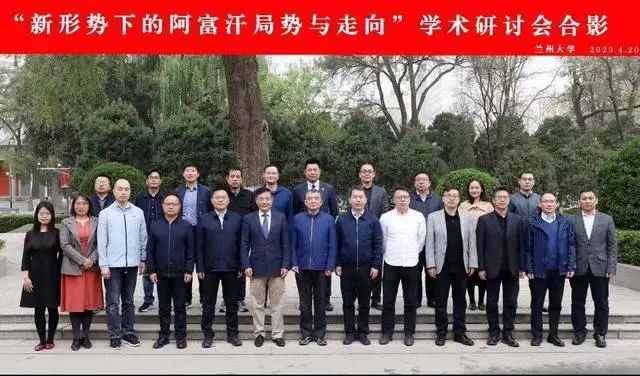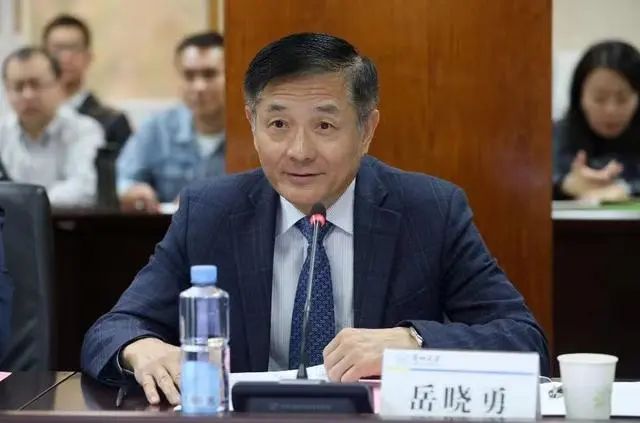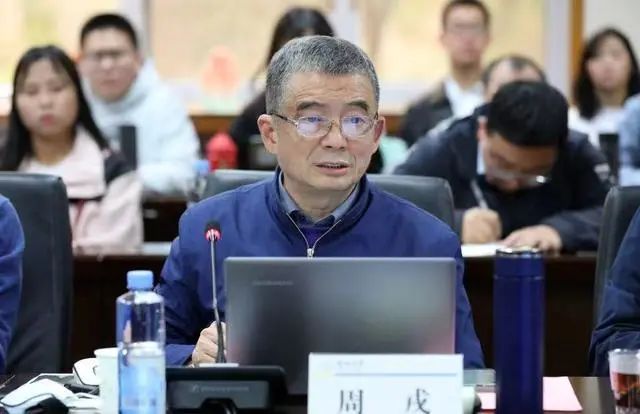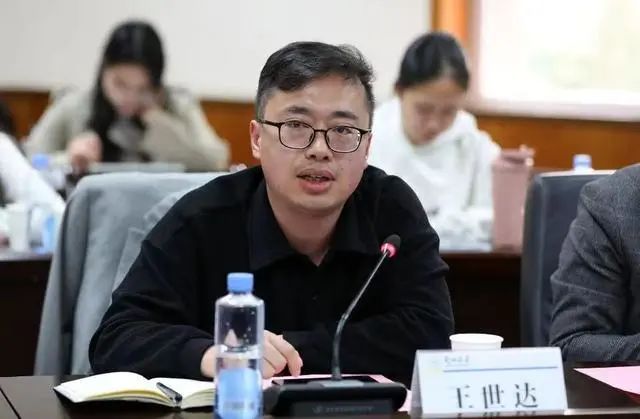Recently, the Afghanistan Studies Center of Lanzhou University (the national and regional research record base of the Ministry of Education) and the Belt and Road Research Center of Lanzhou University jointly held an academic seminar on "The Situation and direction of Afghanistan under the New Situation" in Lanzhou University. Yue Xiaoyong, Special Envoy for Afghan Affairs of the Chinese Foreign Ministry, as well as well-known domestic experts and scholars in the field of Afghan studies are invited to attend the meeting.


Mr. Yue Xiaoyong, Special Envoy for Afghanistan Affairs of the Chinese Ministry of Foreign Affairs; Mr. Zhou Rong, Senior Fellow, Chongyang Institute for Financial Studies, Renmin University of China; Mr. He Ming, Deputy Dean, School of Politics and International Relations, East China Normal University; Mr. Wang Zhen, Researcher, Center for West Asian and North African Studies, Shanghai Academy of Social Sciences; Mr. Wang Shida, Deputy Director, Institute of South Asian Studies, China Institutes of Contemporary International Relations; Mr. Shao Xuecheng, Researcher, Shanghai International Studies University; and Fudan University Associate Professor Ma Bin, Institute of International Studies, Associate Researcher Yang Jin, Institute of Russian, Eastern European and Central Asian Studies, Chinese Academy of Social Sciences, Associate Researcher Wang Jin, Assistant Director of Middle East Studies, Northwest University, Associate Professor Zhang Jijun, Lanzhou University of Arts and Sciences, Dean Wang Jinguo, School of Politics and International Relations, Lanzhou University, Professor Zhu Yongbiao, Center for Afghan Studies, Lanzhou University, Associate Professor Zhang Yuyan and others spoke at the seminar. Special Envoy Yue Xiaoyong pointed out in his keynote speech that at present, Afghanistan is generally stable and the economic reconstruction has started. For the first time in many years, the Afghan people have a historic opportunity to take the destiny of the country into their own hands, but they also face many challenges and are at a critical period of liberation from chaos and governance. In order to promote the political settlement of the Afghan issue under the new circumstances, we should follow three principles: First, we should reject the Cold War and the mentality of confrontation between camps, so that Afghanistan under the changing situation will truly become a new opportunity for cooperation among all parties; Second, we should adhere to the principle of indivisible security, address both the symptoms and root causes in a comprehensive approach, and encourage and support Afghanistan in resolutely and effectively combating and eliminating terrorism. Third, we should uphold equality, respect, dialogue and consultation, and take the initiative to guide Afghanistan to build inclusive governance, moderate and steady governance, and actively explore a path of peace and reconstruction that suits Afghanistan's national conditions and conforms to the trend of The Times. Special Envoy Yue Xiaoyong briefed on China's Position on the Afghan Issue recently issued by China and the efforts made to promote the peace and reconstruction process in Afghanistan, as well as the Fourth Foreign Ministers' Meeting of Neighboring Countries of Afghanistan and the Second Informal Foreign Ministers' Meeting of China, Russia, Pakistan and Iraq that he just attended in Sabarkand, Uzbekistan. The neighboring National Assembly also invited the acting Foreign Minister of the Afghan interim government Manouchehr Mottaki to attend the dialogue. Special Envoy Yue Xiaoyong said that this series of meetings is very successful, showing the unity of neighboring countries and maintaining contact and dialogue with Afghanistan. The participating countries had in-depth exchanges on the political settlement of the Afghan issue, strengthened consensus and joint efforts to stabilize Afghanistan and help Afghanistan, and also expressed expectations for peace, stability and reconstruction in Afghanistan. All parties agreed that countries in the region share a common destiny, should strengthen coordination and cooperation, jointly implement the Tunxi Initiative, promote regional connectivity with Afghanistan, guide Afghanistan to earnestly fulfill its internal and external commitments, call on Afghanistan to pay attention to and respond to the major concerns of its neighbors in counter-terrorism and drug control, and oppose non-regional forces undermining security and stability in Afghanistan and the region. We urge those countries that bear the main responsibility for the current situation in Afghanistan to shoulder their responsibilities. The Second China-Russia-Bay-Iran Foreign Ministers' Informal Meeting on Afghanistan issued a Joint Statement, which reached important consensus in six areas, formed strong support for neighboring countries, and provided ideas for the next step of international and regional cooperation on Afghanistan.

Researcher Zhou Rong first started with women's education and employment issues, and introduced the differences between the top echelon of the Taliban, Yakubu, and the supreme leader, Akhunzada, on many issues. At the same time, it also introduces the existence of corruption such as nepotism and nepotism in Atta. Researcher Zhou Rong pointed out that although there are contradictions within Atta (at the top), inconsistent views do not necessarily indicate internal divisions. Conflicts over women's education, employment and other issues will hardly evolve into open confrontation among factions, and there is almost no possibility of overthrowing Akhunzada's rule within Atta. In addition, Researcher Zhou Rong made a brief introduction on the formation of an inclusive government in Afghanistan, the cooperation between Atta and neighboring countries, the internal anti-Atta forces in Afghanistan, the nature of Atta's army, as well as Atta's international recognition and social governance. Vice President He Ming stressed that since Atta's return to power, Afghanistan can be considered an "abnormal country" given its failure to obtain explicit diplomatic recognition from other countries. As the manager of the "abnormal state," Atta has three faces: a vague Islamist idealist, a speculator trying to integrate into the world, and an immature practitioner of national governance. Researcher Wang Zhen mainly emphasized the following four points: First, under the influence of the adjustment of the anti-terrorism objectives and strategies of the United States and the withdrawal of troops, the terrorist situation in Afghanistan has been further complicated, and the transnational activity network of multiple terrorist organizations has been restored; Second, since the Taliban returned to power, in order to win the support of the international community, its anti-terrorism policy has also made some adjustments, and has carried out certain containment of terrorist organizations in its territory. Third, since the Doha Agreement was signed, terrorist groups in Afghanistan have become less anti-Western, and their attacks against the West have decreased significantly. Fourth, since the Taliban returned to power more than a year ago, the spillover effect of terrorist groups in Afghanistan on the security of neighboring countries is rising.

Deputy Director Wang Shida pointed out that since Atta returned to power, the Khorasan branch of the Islamic State has been growing in Afghanistan. Due to the sudden decline in US anti-terrorism pressure, the lack of Atta's willingness and ability to counter terrorism, and the widespread support of the Safira community in eastern Afghanistan, the Khorasan branch of the Islamic State in Afghanistan will become the most important threat to regional security. In addition, the Khorasan branch of the Islamic State in Afghanistan colludes with anti-China terrorist organizations, directly threatening the safety of our personnel and projects in Central Asia, South Asia and even West Asia, and we need to stay on high alert. President Wang Jinguo discussed the effectiveness and prospects of the Atta regime's foreign policy towards Iran from three aspects. First of all, the main motivations for the Atta regime to promote diplomatic relations with Iran include solving the refugee problem, joint fight against terrorism and drug trafficking, and water distribution issues. Second, the effectiveness of the Atta regime's foreign policy toward Iran includes keeping diplomatic channels open, gradually resolving major differences, expanding channels of communication, and steadily advancing economic and trade cooperation. Finally, President Wang pointed out that at present, the favorable factors for the development of relations between the Atta regime and Iran are increasing, and the sound development of bilateral diplomatic relations is of great significance to both the bilateral and the international community. Wang Jin first pointed out the changes in the dominant government in Afghanistan in the past period from four aspects: internal power structure, authority of government departments, local politics and conservative forces. Then it explains several development bottlenecks that need to be solved in Afghanistan, such as food shortage, biased education policy and women policy, and spillover effect of refugees. Finally, it analyzes the relations between several neighboring countries and Afghanistan, and emphasizes the important role of multilateral mechanism for the settlement of the Afghan issue. Also present at the seminar were Liang Baoping, member of the Party Group of Gansu Foreign Affairs Office, Li Liang, Wang Shusen and Zhang Weiwei from the School of Politics and International Relations of Lanzhou University and the Center for Afghan Studies, Wang Jin, Associate Professor from the Center for Belt and Road Studies of Lanzhou University, Wu Bingke and Liu Huiying, as well as media representatives and some teachers and students from the Center for Afghanistan Studies and the Center for Belt and Road Studies of Lanzhou University.
